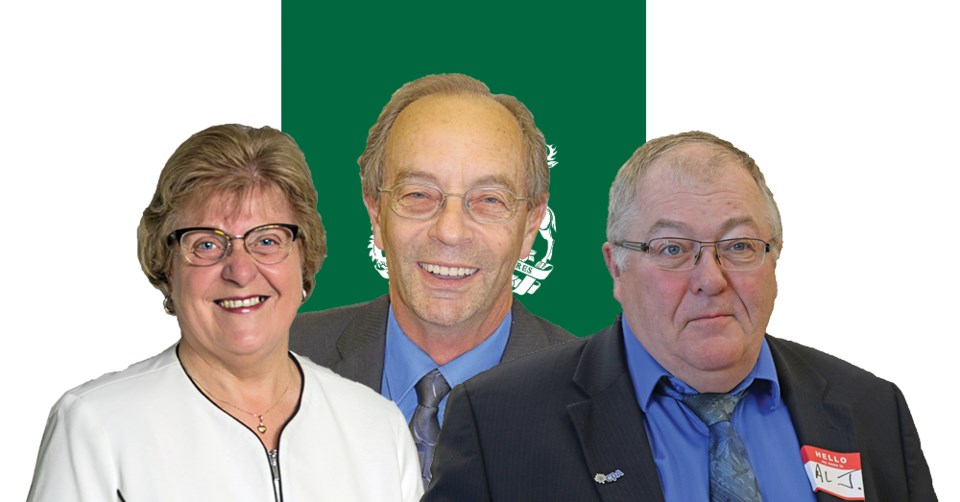NORTHEAST — The provincial budget is on track to get back to surplus, said a local MLA, while the area’s mayors are concerned about the effect on their budgets.
“We still have a deficit of $365 million, but we’ve promised to return to balance in 2019-20 with a very small surplus,” said Fred Bradshaw, MLA for Carrot River Valley. “We’re on track to do what we said we were going to do and we’ve been very careful on spending.”
The MLA said the province is focusing on health, education, social services and infrastructure while trying to keep everything else to pretty close to the same. The NESD will receive approximately $54 million, which is $365,000 more than last year, while the provincial healthcare system will receive a total of $5.77 billion.
“We have no tax increase,” Bradshaw said. “I think quite a few people – or at least from what I heard through the grapevine – were worried about the PST going up.”
In the region, there will be upgrades to the bridge over the Saskatchewan River near Nipawin, the bridge over the Carrot River south of the Town of Carrot River and the highway towards the resort village of Tobin Lake.
Bradshaw admitted that some of the actions the province took with last year’s budget weren’t popular.
“We’ve heard loud and clear from the Saskatchewan people that they didn’t like some of the things we did, so we did change a few things, like the PST on crop insurance.”
Rennie Harper, Nipawin’s mayor, said she was pleased with some aspects of the budget.
“There’s increased funding for policing in rural communities. I think that’s a good step in the right direction.”
The province has committed an extra $5.1 million towards that issue this year.
The mayor said she’s also pleased with the $2.8 million going towards children with Autism Spectrum Disorder.
“I celebrate them for the individualized funding for autistic folks. I think that’s a really good step in the right direction.”
Bradshaw said the province is continuing its commitment to provide municipalities with revenues equal to one per cent of the PST. That means Tisdale will receive $643,000, Melfort $1 million and Nipawin $874,000 this year – a decrease from last year because the PST in 2016 generated fewer dollars compared to 2015.
Al Jellicoe, Tisdale’s mayor, said the decrease was a bit more than expected.
“We were warned that provincial revenue sharing would be down a bit,” he said. “We calculated that but we were out by $25,000.”
He said that’s a comparatively small part of the town’s budget and it shouldn’t affect the town’s plans.
The province has changed how municipalities will receive grants-in-lieu of taxes from SaskPower and SaskEnergy, something that both Jellicoe and Harper said was a positive but were still trying to find out how much they were receiving.
Calling it a pleasant surprise, Rick Lang, Melfort’s mayor, did know how his city would benefit.
“That means there’s $38,000 that’s coming in from grant-in-lieu money that we didn’t see last year,” he said. “That’s good, that the province has had another look at that.”
Lang wasn’t happy that the province is looking at changing the revenue sharing formula for next year’s budget after a consultation process.
“Personally, I think that would be a big mistake because linking it to PST was a process that took a long time to develop,” he said. “The reality is, if PST grows, revenue sharing grows – and so it should because PST growth is based on growth in the province and the primary drivers behind growth in the province are municipalities.”
When cities grow, he said, so does the demand for services and the fiscal burden that comes with that.
“To tamper with that formula, I believe, is very dangerous and will take us backwards as towns, cities and villages, and as a province.”
Jellicoe wasn’t as concerned. He believes the province will still give one per cent of the PST, but it won’t give the revenue the province is now receiving from the tax due to removing exemptions.




